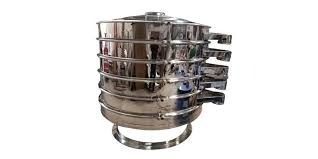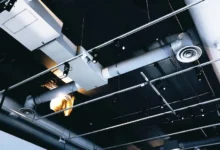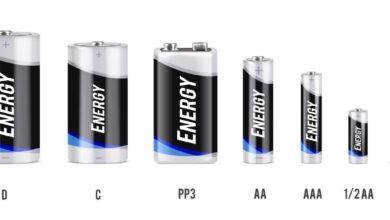Maintenance Tips for Industrial Sieving Machines to Ensure Longevity

Industrial sieving machines play a critical role in various manufacturing processes, from pharmaceuticals to food production. These machines are designed to separate materials based on size, ensuring that the final product meets quality standards. However, like any piece of machinery, sieving machines require proper maintenance to function efficiently and last longer.
In this article, we will explore essential maintenance tips for industrial sieving machines that can help prevent breakdowns, reduce costs, and ensure optimal performance. We will discuss the importance of routine inspections, cleaning procedures, lubrication, and timely repairs, among other factors, to extend the lifespan of these crucial machines.
Importance of Regular Inspections
One of the most critical maintenance practices for industrial sieving machines is conducting regular inspections. Frequent checks allow operators to identify potential issues before they escalate into costly repairs or machine failures. Ideally, inspections should be scheduled weekly or monthly, depending on the frequency of use and the specific operational environment. During these inspections, operators should look for signs of wear and tear, loose components, and any unusual noises that may indicate a problem.
Additionally, checking for material buildup on the sieving surfaces can help maintain optimal functionality. According to industry experts, implementing a structured inspection program can reduce equipment downtime by as much as 30%, ensuring that production schedules are met without interruption.
Cleaning Procedures to Maintain Efficiency
Keeping industrial sieving machines clean is vital for their longevity and performance. Residue from processed materials can accumulate on the sieving surfaces and within the machine, leading to decreased efficiency and potential contamination of future batches. Operators should establish a routine cleaning schedule after each production run or daily, depending on the application.
Use appropriate cleaning agents that are compatible with the materials being processed and avoid abrasive cleaners that can damage delicate components. Additionally, paying attention to the gaskets and seals during cleaning can prevent material leakage, which is a common issue that affects the quality of the output. Research indicates that regular cleaning can enhance the efficiency of sieving machines by up to 20% and help maintain product integrity.
Proper Lubrication Techniques
Lubrication is another critical factor in the maintenance of industrial sieving machines. Proper lubrication reduces friction between moving parts, minimizing wear and tear, and extending the life of the machine. It is essential to follow the manufacturer’s guidelines regarding lubrication intervals and the type of lubricant to use.
Operators should regularly check lubrication levels and apply lubricant as needed, focusing on bearings, gears, and other critical components. Inadequate lubrication can lead to overheating and premature failure of machine parts, resulting in costly repairs. According to a study by the American Society of Mechanical Engineers, an estimated 40% of machinery failures result from improper lubrication practices, highlighting the importance of this maintenance step.
Monitoring Machine Performance
Implementing a system to monitor machine performance can provide valuable insights into the operational efficiency of industrial sieving machines. Operators should track key performance indicators (KPIs) such as throughput, product quality, and energy consumption. By analyzing these metrics, manufacturers can identify trends and potential issues that could impact machine longevity.
For instance, a sudden drop in throughput may indicate a blockage or wear in the sieving surfaces, requiring immediate attention. Additionally, modern sieving machines often come equipped with sensors and monitoring systems that provide real-time data on performance, enabling proactive maintenance measures. According to a report from McKinsey & Company, predictive maintenance powered by data analytics can reduce unplanned downtime by up to 50%, significantly enhancing operational efficiency.
Timely Repairs and Parts Replacement
Addressing minor issues before they escalate into major problems is crucial for maintaining industrial sieving machines. Operators should be trained to recognize warning signs that indicate the need for repairs, such as unusual vibrations, noises, or changes in performance. Timely repairs can prevent equipment failure and extend the machine’s lifespan significantly.
Moreover, regularly replacing worn-out parts, such as screens, gaskets, and seals, can ensure that the machine operates at peak performance. A proactive approach to repairs and part replacement can save manufacturers substantial costs in the long run. According to industry estimates, companies that adopt a preventive maintenance strategy can save up to 25% on repair costs over time, showcasing the financial benefits of regular maintenance practices.
Training Staff on Best Practices
Investing in training for staff operating industrial sieving machines is essential for ensuring proper maintenance and care. Well-trained operators are more likely to adhere to maintenance schedules, understand the importance of cleanliness, and recognize signs of wear and tear. Training should cover topics such as machine operation, safety protocols, and troubleshooting techniques.
By fostering a culture of maintenance awareness, manufacturers can empower their teams to take ownership of equipment care, leading to improved performance and machine longevity. Additionally, ongoing training sessions can keep staff updated on new technologies and maintenance techniques, ensuring that they remain equipped to handle challenges as they arise. A competent workforce can significantly reduce operational risks and enhance the overall reliability of industrial machinery.
Utilizing Manufacturer Support and Resources
Many manufacturers of industrial sieving machines provide valuable support and resources to help operators maintain their equipment effectively. This can include detailed operation manuals, maintenance guides, and even training programs. It is crucial for operators to leverage these resources to ensure that they are following best practices specific to their machines.
Regular communication with the manufacturer can also provide insights into common issues, recommended maintenance schedules, and updates on new technologies that could enhance machine performance. Engaging with manufacturer support can help businesses stay informed about best practices and avoid costly mistakes. According to a survey by the National Association of Manufacturers, 68% of manufacturers reported that utilizing vendor support has led to improved equipment performance, demonstrating the value of these resources.
Conclusion: The Path to Longevity
In conclusion, maintaining industrial sieving machines is crucial for ensuring their longevity and optimal performance. By implementing regular inspections, adhering to cleaning procedures, ensuring proper lubrication, monitoring machine performance, and making timely repairs, manufacturers can significantly extend the lifespan of their equipment.
Additionally, investing in staff training and utilizing manufacturer resources can further enhance maintenance practices. Ultimately, taking a proactive approach to maintenance can lead to increased efficiency, reduced costs, and a more reliable production process. As the manufacturing industry continues to evolve, prioritizing machine maintenance will remain a key factor in achieving operational excellence and sustaining competitive advantage.





